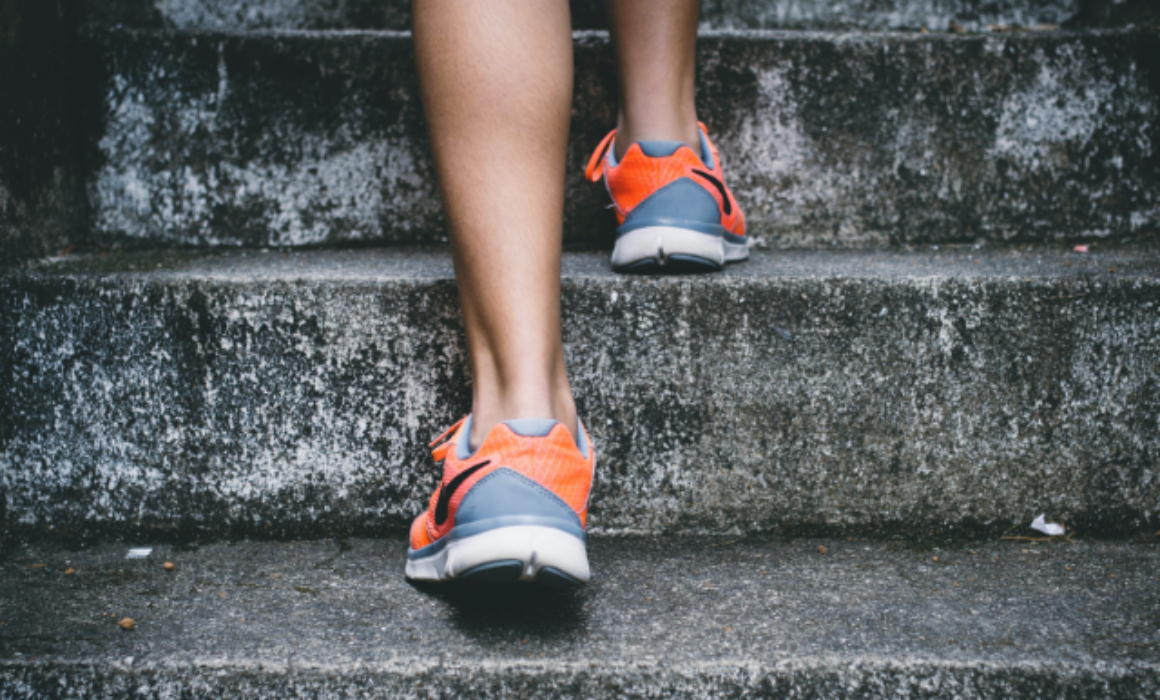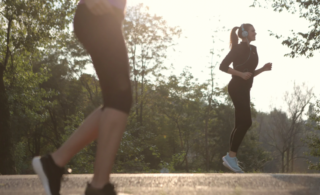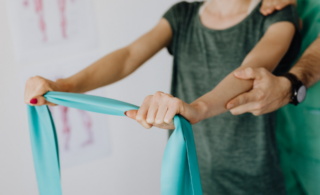
We are all different when it comes to energy levels and exercising during cancer treatment: some people are keen to continue a dedicated pre-diagnosis exercise regime, some don’t feel up to exercising as much as before their diagnosis and others may not previously have exercised. You might not feel like doing any exercise whilst you’re going through breast cancer treatment, but it’s really important to get your trainers on and try to do some. In this article we set out our top ten tips for exercising during treatment.
We’ve written this from our experience as patients, but we’ve got a selection of articles about exercise written by qualified instructors linked at the end of this article.
1. Take professional advice from your oncologist, breast care nurse and/or chemo nurses on the type and extent of exercise you should be doing at each stage during your cancer treatment. For example, after surgery you will not be up to doing the same as when you are starting radiotherapy. There are cancer rehab exercise specialists who can give more specific advice about your exercise regime.
2. It might be best to stick to the type and intensity of exercise that you were doing before your breast cancer diagnosis – it might not be a good idea to start a new intense type of exercise that you are not used to, whilst also going through treatment. Your body has enough going on. Sarah Newman, Cancer Rehab Specialist, says, “I think a really key point is that you need to respect your body and what it is going through. You may find your energy levels are lower which is the treatment. The guidance is that you exercise to tolerance not exhaustion if you want to get full benefits on cancer related side effects.”
3. Remember that just doing things like housework, shopping, collecting children from school and gardening are all forms of exercise.
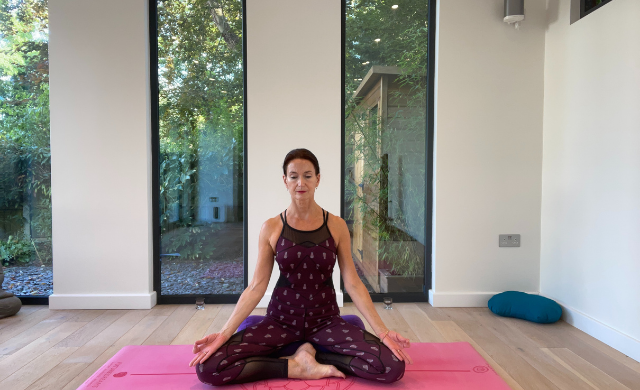
4. If you are at risk of lymphoedema then be careful of any exercises that may increase your risk of causing it to flare up and consider seeking professional advice about any exercise regime that uses your upper body. Sarah Newman says, “Anyone who has had surgery or radiotherapy to the lymphatic system or has a high BMI is at risk of lymphoedema – that’s lifetime risk. So they need to continue to be careful even when treatment ends. And the best source again is a cancer and exercise specialist.”
5. During chemotherapy remember that you have a low immunity so if you go to a gym or studio class take the usual precautions for avoiding infection (avoid anyone with an infection, use antibacterial wipes on the equipment etc). Check with your oncologist about using gyms and swimming. Outdoor exercising can have the lowest risk.
6. If you need motivation then you could make an uplifting playlist to listen to while walking or running. Or ask a friend or family member to exercise with you.
7. Walking is a great form of exercise during breast cancer treatment because you are also getting fresh air (if you can walk away from the roads such as in a park or the countryside then it is even better).
8. Check if your local leisure centre or council put on any exercise programmes for people going through cancer treatment.
9. Remember to take water with you whatever exercise you are doing and keep well hydrated. Other points to consider during exercise are:
- Warm up and cool down are really important after a cancer diagnosis, such as stretching.
- Don’t try an exercise if you have a temperature or have been sick/have diarrhea.
10. The benefits of exercising during treatment are huge:
- Feeling better physically (such as increased energy levels, reduced joint pain and muscle aches and reduced nausea)
- Feeling better mentally
- Controlling weight
- Fresh air (if outside)
- Seeing people and a change of scene
- Getting out of the house and realising that even though you are feeling awful, life carries on as normal around you. This was an important one for me.

Further information:
CRUK exercise guidelines for during cancer treatment.
If you need help to be more active then check out the Macmillan guide to physical activity and their pages on supporting you to exercise. You can search for activities near you, download exercise guides, talk to experts, order a pedometer or exercise DVD, and read a whole range of resources about exercising during treatment.
Breast Cancer Now have a lot of information on their website about exercising during treatment.
5Kyourway A community-based initiative to encourage those living with and beyond cancer, families, friends and those working in cancer services to walk, jog, run, cheer or volunteer at a local 5k Your Way parkrun event on the last Saturday of every month. Check out the website to find your nearest parkrun and don’t worry about running – you can also walk it.
Trekstock have LOADS of information about exercising during and after cancer. They are aimed at people in their 20s, 30s and 40s but do still have a look at their resources online if you are older. For those in the right age bracket, RENEW is an amazing free resource – it’s their free eight week group exercise programme, held in London and led by Level 4 Cancer Rehab qualified trainers, and tailored to you. They also offer a great selection of online exercise videos.
Move Against Cancer provide lots of support and help in exercising during cancer treatment including, for example, a free eight week online programme.
Move Dance Feel Helping women affected by cancer to reconnect with themselves, through a shared creative dance experience.
SafeFit – SafeFit is a research trial designed to support anyone in the UK with suspicion of, or confirmed diagnosis of cancer where cancer exercise specialists will offer you free, remote advice, support and resources to maintain and improve physical and emotional well-being. Ask your NHS medical team for more information. (Note that as at the time of writing this is closed to referrals).
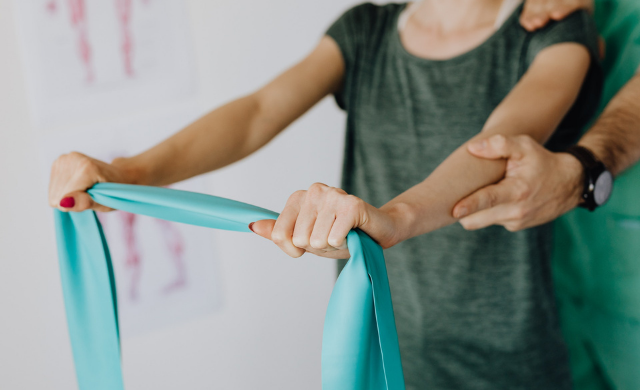
Future Dreams hold a range of support groups, classes, workshops and events to help you and your carers during your breast cancer diagnosis. These are held both online and in person at the London-based Future Dreams House. To see what’s on offer and to book your place, see here.
To return to the homepage of our Information Hub, click here where you can access more helpful information, practical advice, personal stories and more.
Reviewed March 2023
The information and content provided on this page has been written from a patient’s perspective then reviewed by (1) Sarah Newman, Cancer Rehab Specialist, January 2022 and (2) a breast care nurse. It is intended for information and educational purposes only. It is not intended to substitute for professional medical advice. Please contact your medical team for advice on anything covered in this article and/or in relation to your personal situation. The links and/or recommendations in this article to third-party resources are for your information and we take no responsibility for the content contained in those third-party resources. Any product recommendations made in this article are not product endorsements and unless otherwise stated, they are made without any affiliation to the brand of that product. We ask you to note that there may be other similar products available.
Share
Related reads

Support awareness research
Donate to those touched by BREAST cancer
Sylvie and Danielle began Future Dreams with just £100 in 2008. They believed nobody should face breast cancer alone. Their legacy lives on in Future Dreams House. We couldn’t continue to fund support services for those touched by breast cancer, raise awareness of breast cancer and promote early diagnosis and advance research into secondary breast cancer without your help. Please consider partnering with us or making a donation.
